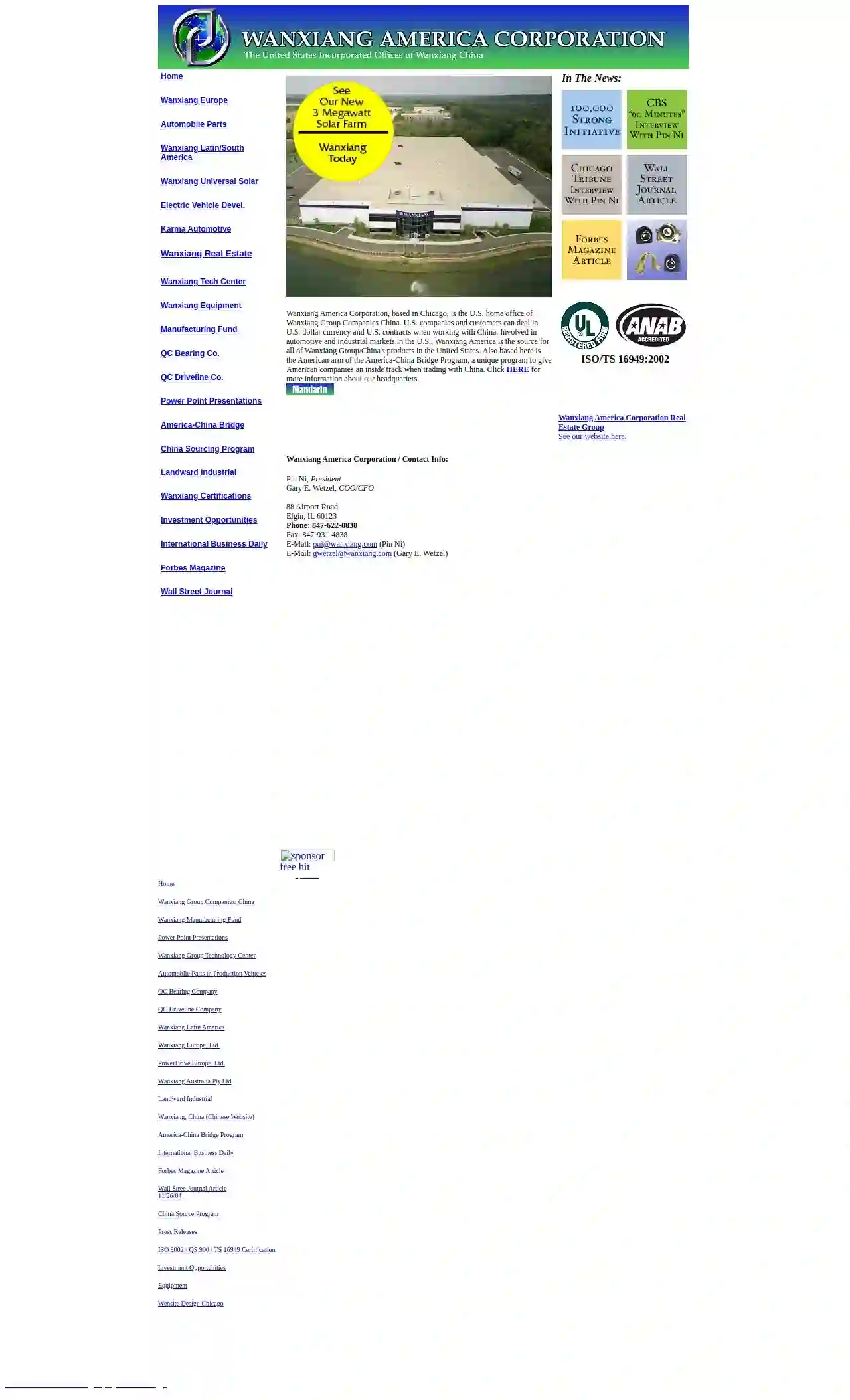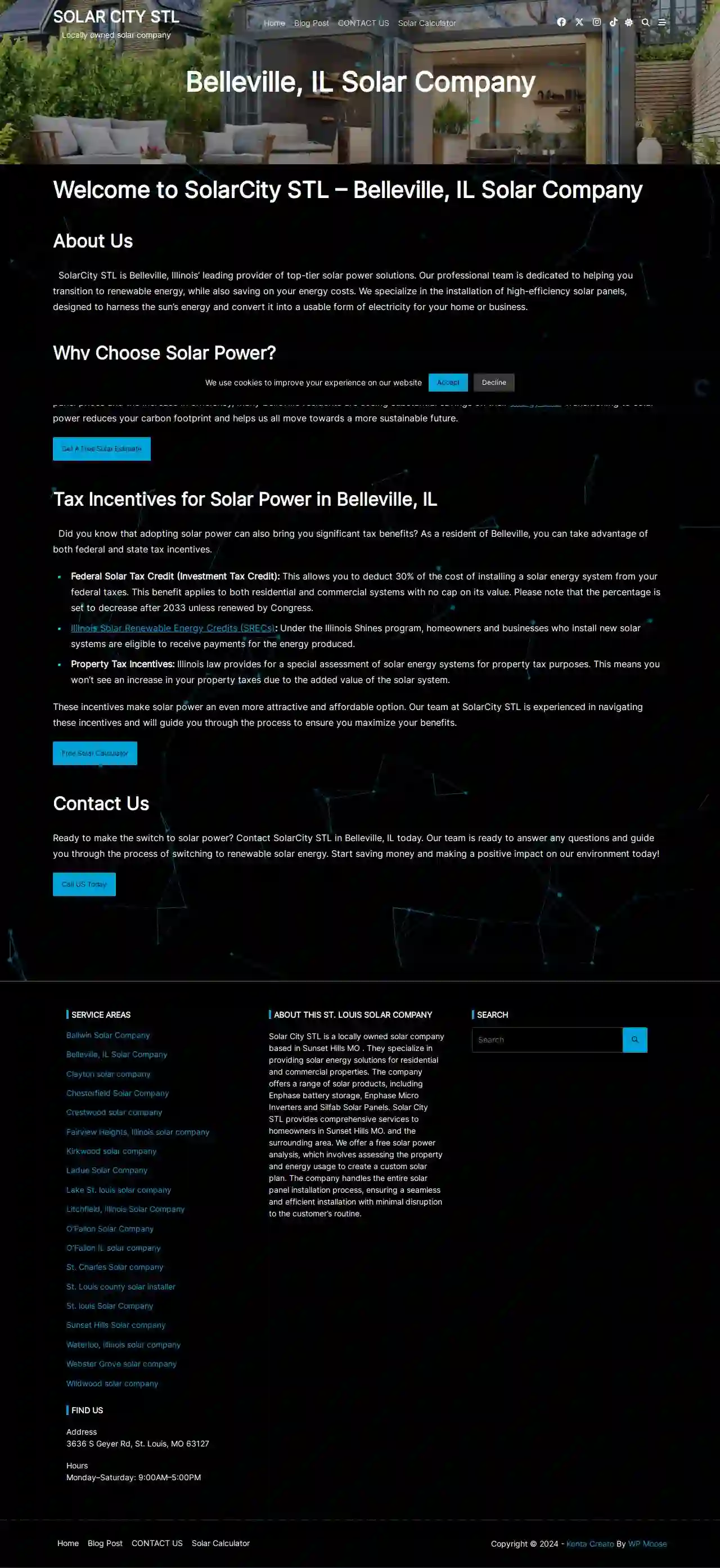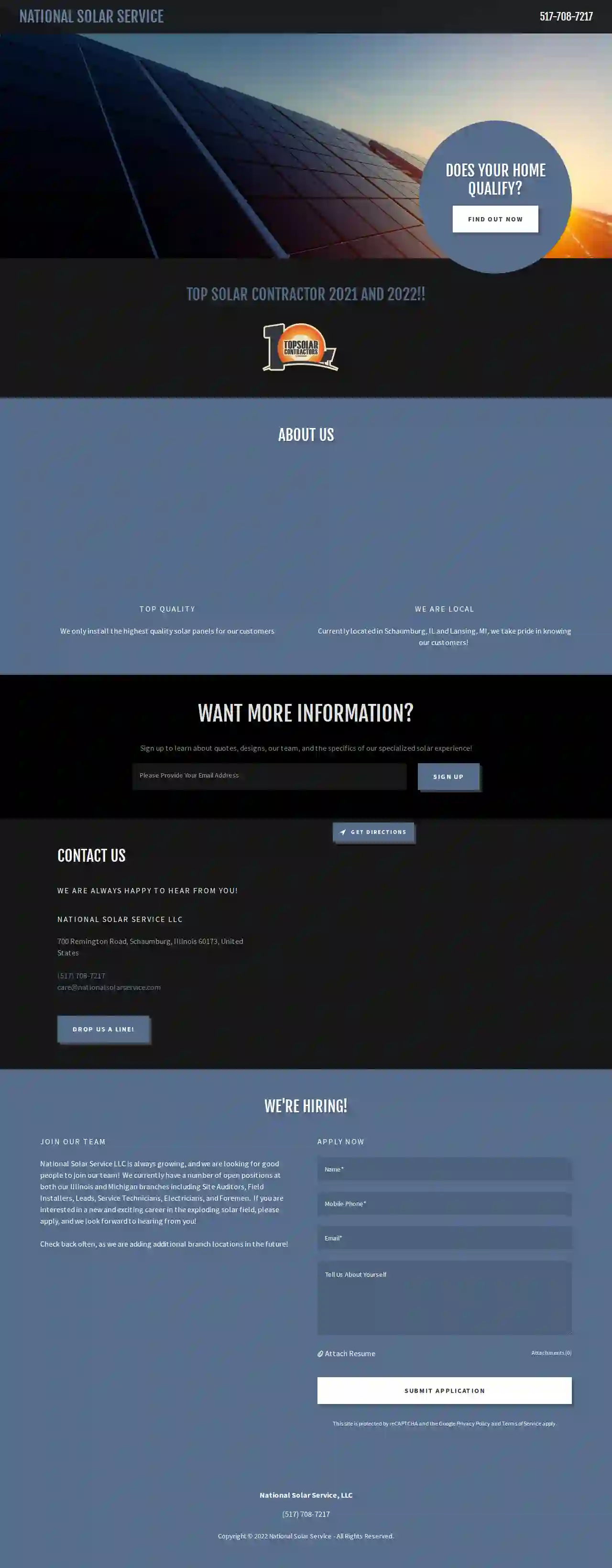Commercial Solar Installers Round Lake Beach
Best Solar for Businesses in Round Lake Beach
Get up to 3 Business Solar Installers quotes for your project today! Compare profiles, reviews, accreditations, portfolio, etc... and choose the best offer.

Wanxiang New Energy
52 reviewsWanxiang America Corporation, Elgin, IL, 88 Airport Road, 60123, USWanxiang America Corporation, based in Chicago, is the U.S. home office of Wanxiang Group Companies China. U.S. companies and customers can deal in U.S. dollar currency and U.S. contracts when working with China. Involved in automotive and industrial markets in the U.S., Wanxiang America is the source for all of Wanxiang Group/China's products in the United States. Also based here is the American arm of the America-China Bridge Program, a unique program to give American companies an inside track when trading with China.
- Services
- Why Us?
- Accreditations
- Our Team
- Testimonials
- Gallery
Get Quote
Solar Contractors Chicago
275 Payson St, Hoffman Estates, 60169, USSolarCC is your go-to resource for the best solar panel and electric vehicle (EV) charging businesses in Chicago and the surrounding Illinois cities. Learn vital information about solar panel installations, such as tax breaks, special features, discounts, and prevailing trends. Discover our blog, offering insightful information, data, and learning tools about solar energy and electric vehicle charging.
- Services
- Why Us?
- Accreditations
- Our Team
- Testimonials
- Gallery
Get Quote
Continental Energy Solutions LLC
52 reviewsSuite 280, Oak Brook, IL, 815 Commerce Drive, 60523, USContinental Energy Solutions (CES) is a leading provider of solar and energy storage solutions. Founded in 2009, the company has a vision for a cleaner Illinois and has worked tirelessly to help customers maximize energy savings while reducing their carbon footprint. With a team of passionate project managers, engineers, and field supervisors, CES has built over 90 solar PV projects, several solar plus battery storage solutions, and installed over 350 electric vehicle chargers.
- Services
- Why Us?
- Accreditations
- Our Team
- Testimonials
- Gallery
Get Quote
Solar City STL Illinois
3636 South Geyer Rd Ste 100, St. Louis, MO, 63127, USSolarCity STL is Belleville, Illinois’ leading provider of top-tier solar power solutions. Our professional team is dedicated to helping you transition to renewable energy, while also saving on your energy costs. We specialize in the installation of high-efficiency solar panels, designed to harness the sun’s energy and convert it into a usable form of electricity for your home or business.
- Services
- Why Us?
- Accreditations
- Our Team
- Testimonials
- Gallery
Get Quote
WindSoleil Solar and Wind Energy Services
4.642 reviews401 N. Trumbull Ave Ste D, N/A, Chicago, 60624, USWindSoleil provides Solar and Wind Energy Installation Services in Illinois for home and businesses, Solar Panels, Wind Turbines, Off-Grid Kits, Portable Solar Chargers, etc, Worldwide.
- Services
- Why Us?
- Accreditations
- Our Team
- Testimonials
- Gallery
Get Quote
Iconic Energy
4.663 reviewsRockford, IL, USA, 4617 American Road, 61109, USIconic Energy is a Midwest solar installation company based in Rockford, Illinois. Our main focus is to provide clean affordable electricity to homes and businesses in the Midwest.
- Services
- Why Us?
- Accreditations
- Our Team
- Testimonials
- Gallery
Get Quote
National Solar Service
2.223 reviewsSchaumburg, Illinois, United States, 700 Remington Road, 60173, USNational Solar Service LLC is a top solar contractor located in Schaumburg, Illinois, and Lansing, Michigan. They specialize in installing high-quality solar panels and offer a variety of services to their customers. Their team is dedicated to providing excellent customer service and ensuring that their clients' homes qualify for solar installation. They are proud to be a local business and take pride in knowing their customers. National Solar Service LLC is always growing and looking for good people to join their team.
- Services
- Why Us?
- Accreditations
- Our Team
- Gallery
Get Quote
Radiant Solar
52 reviews2012 Tin Cup Rd Unit B, PO Box 343, Mahomet, 61853, USRadiant Solar is a solar company in Champaign County serving Central Illinois. A Veteran owned and family operated business , we aim to provide affordable, quality, green energy solar panel installations to our customers by cutting out the middle-man. Not only saving you money now, but for years into the future.
- Services
- Why Us?
- Accreditations
- Gallery
Get Quote
ROUTE 66 SOLAR
4.853 reviews123 Solar Way, Suite 100, Springfield, 62704, USRoute 66 Solar is a local, family-owned solar installation company dedicated to providing high-quality solar installation services for homes and businesses. They offer a range of benefits including energy independence, carbon footprint reductions, tax savings, and property value increases. With extensive knowledge of federal/local solar incentives, they help customers qualify for a range of incentives including the Investment Tax Credit (ITC), Illinois solar rebates, and net metering. They provide 24/7 monitoring to ensure the solar installation delivers all the benefits.
- Services
- Why Us?
- Accreditations
- Our Team
- Testimonials
- Gallery
Get Quote
FreeWorld Solar
538 reviewsSuite 100, Chicago, IL, 123 Solar Street, 60601, USFreeWorld Solar is a leading provider of solar energy solutions in Chicago and surrounding areas. Our team of experts is dedicated to helping property owners save money on electricity by harnessing the power of the sun. We offer a range of services including solar panel installation, battery storage, EV chargers, commercial development, and solar financing and leasing. Our goal is to make solar energy accessible to all, which is why we provide free estimates and flexible financing options while helping you find applicable tax incentives and rebates.
- Services
- Why Us?
- Accreditations
- Our Team
- Testimonials
- Gallery
Get Quote
Over 4,210+ Solar Contractors registered
Our solar experts operate in Round Lake Beach & surroundings!
SolarCompaniesHub has curated and vetted the Best Solar Installers near Round Lake Beach. Find a top & reliable contractor today.
Frequently Asked Questions About Commercial Solar Installations
- System Size: Larger systems take longer to install.
- Roof or Ground Mount: Ground-mounted systems often involve more site preparation and civil work.
- Permitting and Inspections: The time required to obtain permits and schedule inspections can vary by location.
- Weather Conditions: Inclement weather can delay installation.
- Installer's Schedule: The installer's availability and workload will also affect the timeline.
What happens to my commercial solar system during a power outage?
What is the lifespan of a commercial solar system?
How long does it take to install a commercial solar system?
What is the future of commercial solar?
What happens to my commercial solar system during a power outage?
What is the lifespan of a commercial solar system?
How long does it take to install a commercial solar system?
- System Size: Larger systems take longer to install.
- Roof or Ground Mount: Ground-mounted systems often involve more site preparation and civil work.
- Permitting and Inspections: The time required to obtain permits and schedule inspections can vary by location.
- Weather Conditions: Inclement weather can delay installation.
- Installer's Schedule: The installer's availability and workload will also affect the timeline.